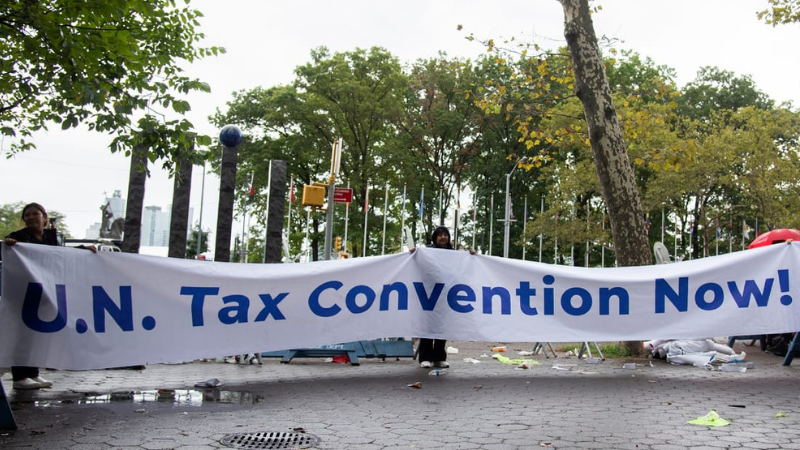
21 September 2023. The Tax and Fiscal Justice-Asia (TAFJA) welcomes the UN Secretary General’s Report on the promotion of inclusive and effective international tax cooperation at the 78th session of the General Assembly, and the High-level dialogue at the Sustainable Development Goals Summit 2023 where the urgency of democratizing global tax governance was stressed by many speakers. We call on member-states to immediately begin negotiations and move the process towards setting up a genuinely inclusive, democratic, accountable and transparent UN Tax Body. We believe that, of the three options presented in the SG’s Report, Option 2 – a UN framework convention on international tax cooperation – best serves this purpose.
General Assembly resolution 77/244 on the “Promotion of inclusive and effective international tax cooperation at the United Nations” envisions “inclusiveness” in terms of parity of all member-states in the upcoming tax negotiations and “inclusiveness” also in terms of subject matter. We believe it is the only way to have a genuinely effective tax cooperation.
We reiterate that recognition of the sovereign right to tax is paramount. We note positively that the SG Report started off by highlighting this as a fundamental principle on which international tax cooperation should be anchored. However, as the Moderator of the High- Level dialogue on 20 September 2023 said in concluding the session, “the right to tax goes hand in hand with the obligation to provide public services.” When international tax-related issues constrain governments’ abilities to ensure the maximum available resources to fulfill human rights obligations and realize sustainable development commitments, then it becomes imperative for the international community to address these constraints together.
The economic vulnerabilities of one country are no excuse to disrespect its sovereign right to tax; nor should such a country be bullied into accepting the tax agendas of elite countries that do not serve its peoples’ interests. In this regard, Sri Lanka and other countries should not be selectively targeted by international financial institutions when they exercise their sovereign right to tax digital services or undertake urgent measures that are crucial for the health of their economy and for ensuring genuine people’s recovery.
We also caution very strongly against carving out taxation of the digital economy and e- Commerce from the UN-led process towards a convention on international tax cooperation. Doing so would seriously undermine the historic step taken by the UN towards building inclusive tax governance through a democratic process. We are witness to attempts by forces in the international community to push for a carve-out for taxation of the digital economy and eCommerce, arguing that these should be addressed under the Pillars 1 and 2 ‘solutions’ of the OECD/G20 Inclusive Framework of Base Erosion and Profit Shifting. On this, we reiterate TAFJA’s position that the so-called “Inclusive Framework” of the OECD-G20 is nothing more than a ‘Tax Deal of the Rich,’ one that does not offer any benefits to the peoples and countries of the Global South. Indeed the SG Report mentions the issues raised by member-ststes and other stakeholders as regards the OECD/G20 IF on BEPS.
We call on governments in Asia to stand vigilant against any carve-outs or other elitist tax agendas that may be forced down our throats. They may come in the form of loan restructuring conditionalities by the IMF, such as in the case of Sri Lanka, or by other means.
Even before the UN tax process could begin, we had already seen attempts to undermine the process by depreciating the importance of a complete overhaul of the international tax architecture and by diverting initiatives solely to reforms in tax administration, arguing that this is primarily what developing countries need.
Finally, we reiterate our call for the creation of a UN TAX Body where each member-state is represented on an equal basis.
Contact persons:
Aida Jean Manipon – aidajeanm@gmail.com
Ah Maftuchan – ah.maftuchan@gmail.com
Tony Salvador – deleontony62@gmail.com
John Lazaro – johnlazaro.apmdd@gmail.com



